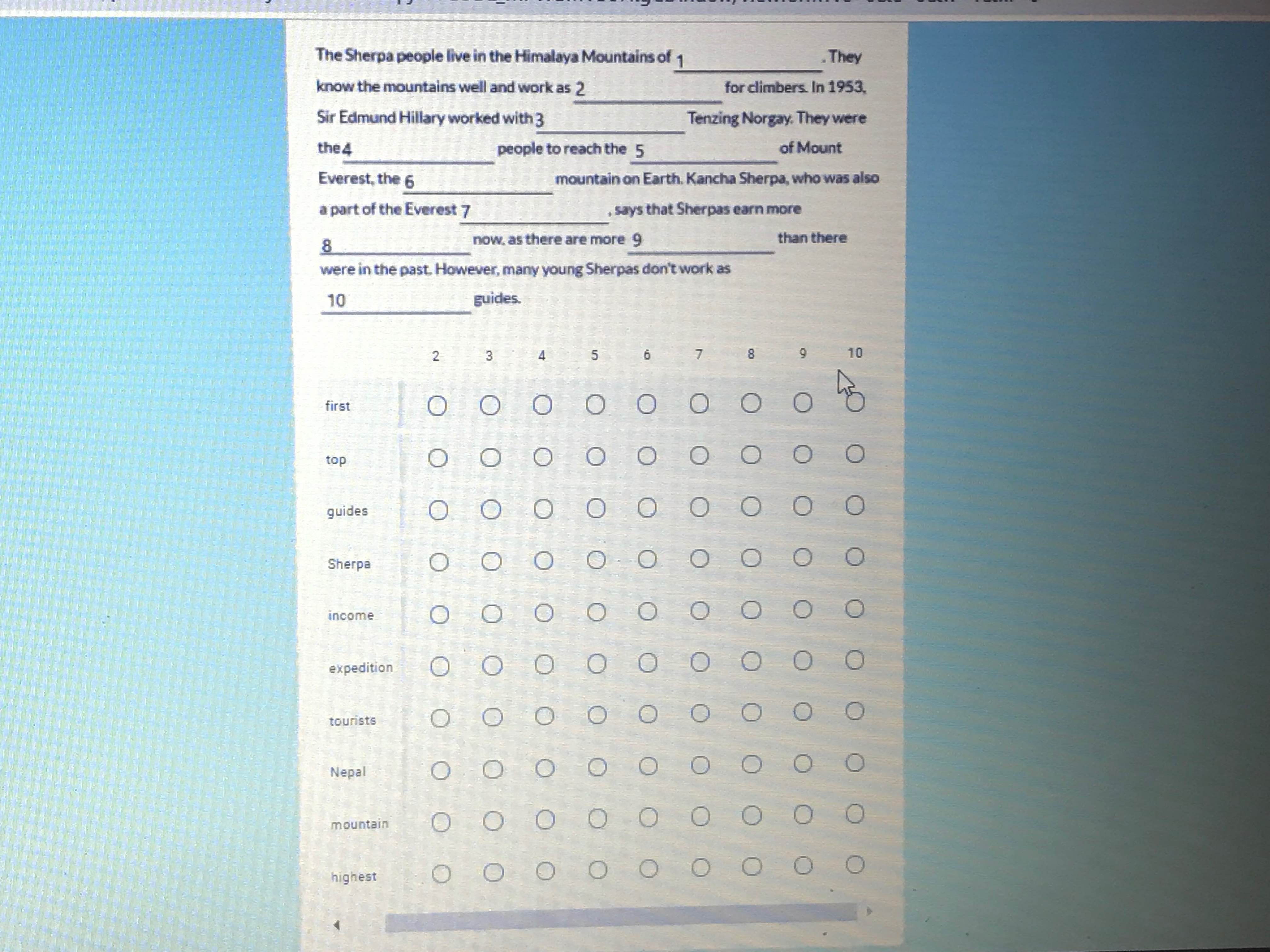
Hãy nhập câu hỏi của bạn vào đây, nếu là tài khoản VIP, bạn sẽ được ưu tiên trả lời.



A: How is housework devided in your family?
B: Well, in my family everyone is reponsible different household chores.
A: Could you make it clearer? What exactly family members do?
B: My father do heavy lifting and fixes broken things in our house. He also takes care of the garden.
A: How about your mother?
B: My mother takes responsibility for buying groceries and necesities, cooks meals, does washing-up.
A: What do you and your elder brother do?
B: My elder brother usually sweeps the floor, cleans the windows and feeds pets.
A: And you?
B: Uhm, I'm the youngest in my family, so my duty is just to wash dishes after meals, tidy the dining table and take out garbage everyday.

HOUSEHOLD CHORES
A: How is housework devided in your family?
B: Well, in my family everyone is reponsible different household chores.
A: Could you make it clearer? What exactly family members do?
B: My father do heavy lifting and fixes broken things in our house. He also takes care of the garden.
A: How about your mother?
B: My mother takes responsibility for buying groceries and necesities, cooks meals, does washing-up.
A: What do you and your elder brother do?
B: My elder brother usually sweeps the floor, cleans the windows and feeds pets.
A: And you?
B: Uhm, I'm the youngest in my family, so my duty is just to wash dishes after meals, tidy the dining table and take out garbage everyday.

Điểm mạnh:
I can cope well with deadlines and at school, I often get high scores in Maths and Physics.
Điểm yếu:
I'm weak at note-taking and learning by heart.
em than khảo nhé!
Giúp mình phần điểm yếu, điểm mạnh thôi cũng được mọi người à 🥲

2.
I do not support the use of personal electronic devices in learning because I see a lot of their disadvantages.
First of all, electronic devices distract students from their studies. Many students may play games, text, chat and cheat on their smartphones or tablets. They can go on the Internet, type questions and search for answers.
Second, when students use the Internet, they have access to inappropriate information, videos and pictures. They may spend many hours reading and watching, forgetting about their projects or assignments.
Last but not least, students might take embarrassing pictures of others, share them on the web or use them to demand money or force people to do things for them.
In conclusion, personal electronic devices may bring more harm than good to students, suggest that teachers ban or limit their use in the classroom.

1. Các ngày lễ phổ biến trong văn hóa phương Tây
- April Fools’ Day – 01/04: Ngày cá tháng Tư
- Bank holiday/public holiday: Ngày quốc lễ
- Boxing Day – 26/12: Ngày lễ tặng quà (sau ngày Giáng Sinh)
- Christmas Eve – 24/12: Đêm Giáng Sinh
- Christmas Day – 25/12: Ngày Giáng Sinh
- Easter: Ngày lễ phục sinh
- Father’s Day: Ngày của bố
- Mother’s Day: Ngày của mẹ
- Good Friday: Ngày thứ 6 tuần Thánh
- Halloween – 31/10: Lễ hội Halloween
- Independence Day: Ngày lễ độc lập
- New Year’s Day: Năm mới
- Sant Patrick’s Day – (17/03): Ngày lễ Thánh Patrick
- Thanksgiving: Lễ tạ ơn
- Valentine Day – (14/02): Lễ tình nhân
2. Các ngày lễ phổ biến trong văn hóa Đông phương
- Lunar New Year: Tết Nguyên Đán
- Lantern Festival – 15/01: Tết Nguyên Tiêu
- Cold year Festival – 3/3: Tết Hàn Thực
- Buddha’s Birthday – 15/4: Lễ Phật Đản
- Mid-year Festival – 5/5: Tết Đoan Ngọ
- Ghost Festival – 15/7: Lễ Vu Lan
- Mid-Autumn Festival – 15/8: Tết Trung Thu
- April Fools’ Day – 01/04: Ngày cá tháng Tư
- Bank holiday/public holiday: Ngày quốc lễ
- Boxing Day – 26/12: Ngày lễ tặng quà (sau ngày Giáng Sinh)
- Christmas Eve – 24/12: Đêm Giáng Sinh
- Christmas Day – 25/12: Ngày Giáng Sinh
- Easter: Ngày lễ phục sinh
- Father’s Day: Ngày của bố
- Mother’s Day: Ngày của mẹ
- Good Friday: Ngày thứ 6 tuần Thánh
- Halloween – 31/10: Lễ hội Halloween
- Independence Day: Ngày lễ độc lập
- New Year’s Day: Năm mới
- Sant Patrick’s Day – (17/03): Ngày lễ Thánh Patrick
- Thanksgiving: Lễ tạ ơn
- Valentine Day – (14/02): Lễ tình nhân